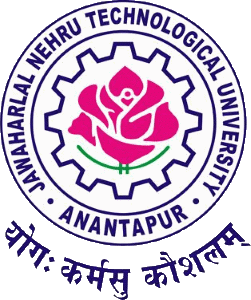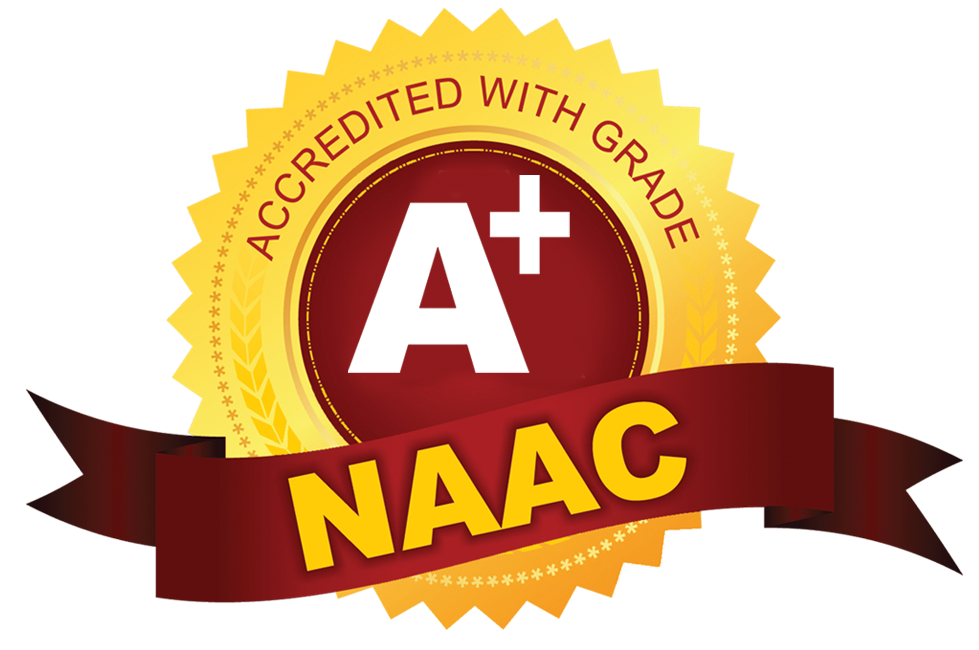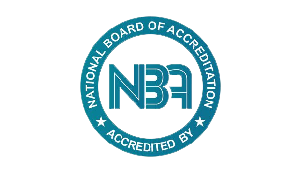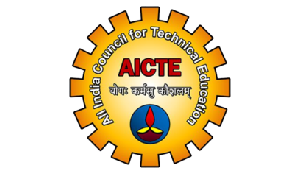EEE Department
Department of Electrical & Electronics Engineering
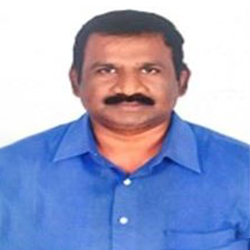
Dr. Y.N.VIJAYA KUMAR
HOD & Professor
M.Tech, Ph.D
Department Profile
The Department of Electrical and Electronics Engineering (EEE) at Sri Venkateswara College of Engineering and Technology (SVCET) was established in 1998 and has since grown to offer Diploma, B.Tech, and M.Tech programs. Accredited by NBA and NAAC, and recognized as a research center by JNTUA, the department has achieved autonomous status since 2012. With a robust faculty team comprising experienced professors holding PhDs and M.Tech degrees, the department adheres to AICTE norms, maintaining a faculty-student ratio of 1:15. It boasts well-equipped laboratories, including Electrical Circuits, Machines, Power Systems, and Power Electronics Labs, as well as advanced facilities like Embedded Systems and Simulation Labs. The department also integrates skill-oriented courses and licensed software such as MATLAB, PSIM, and SKM Power Tools to provide practical and research-oriented education.
The department actively fosters academic excellence through seminars, conferences, guest lectures, and technical workshops. It has received significant grants, including Rs. 7.25 Lakhs under MODROBS for lab modernization and Rs. 23 Lakhs under the Women Scientist Scheme for advanced research projects. Students gain real-world exposure through industrial visits, technical training, and projects, preparing them for placements in top organizations like Infosys, Wipro, Siemens, Toshiba, and APTRANSCO. Faculty members are actively engaged in research, publishing in reputed journals, and contributing to consultancy projects. The department’s commitment to quality education, state-of-the-art infrastructure, and a focus on student and faculty development ensures its position as a leader in Electrical and Electronics Engineering education.
Our Objectives
- To provide a strong foundation in Electrical and Electronics Engineering principles, equipping students with theoretical and practical knowledge to solve real-world engineering problems.
- To foster innovation and research capabilities through advanced laboratories, modern simulation tools, and industry-sponsored projects.
- To prepare students for successful careers in core electrical engineering industries, power sectors, and emerging technologies, while encouraging entrepreneurial endeavors.
- To promote continuous learning and skill enhancement through technical workshops, seminars, faculty development programs, and industrial visits.
- To instill professional ethics and social responsibility in students, ensuring they contribute positively to society and uphold sustainable engineering practices.
- To bridge the gap between academia and industry by providing hands-on experience with advanced tools like MATLAB, PSIM, and Embedded Systems, and facilitating internships and placements in reputed organizations.
- To encourage lifelong learning and advanced education by motivating students and faculty to engage in higher studies, cutting-edge research, and participation in national and international conferences.
Department Strengths
- ✔ Accreditation and Recognition
- ✔ Experienced and Qualified Faculty
- ✔ State-of-the-Art Infrastructure
- ✔ Conducts workshops, seminars, and guest lectures.
- ✔ Industry Collaborations and Placements
- ✔ Research and Development Focus
- ✔ Regular seminars, workshops, technical quizzes, industrial visits, and communication skill enhancement programs
Courses Offered
| Level | Course | Intake |
|---|---|---|
| Diploma | Electrical and Electrical Engineering (DEEE) | 60 |
Under Graduate
| Electrical and Electrical Engineering
(>B.Tech)
|
60 |
|
| Post Graduate | Power Electronics and Electrical Drives (M.Tech) | 18 |
Vision and Mission
🎯 Vision
• To be recognized as a center of excellence to produce competent and ethical Electrical Engineers capable of finding solutions to problems related to society, environment and industry using innovative technologies.
🚀 Mission
-
M1: To establish suitable forums and state-of-the art resources to enhance the faculty members creative and innovative endeavours in teaching and research in Electrical Engineering and allied fields
-
M2: To deliver knowledge among students through contemporary curriculum and modern pedagogical methods in the areas of electrical engineering and interdisciplinary areas
-
M3: To enable students, develop skills in solving complex engineering problems of current times and also provide a framework for promoting collaborative and multidisciplinary activities
-
M4: To nurture the personality traits among the students in different dimensions emphasis the ethical values and to address needs of the nation.
PROGRAM EDUCATIONAL OBJECTIVES (PEO’S) :
| PEO Code | Objective |
|---|---|
| PEO-1 | Excel in professional career and/or higher education by acquiring knowledge in Mathematics and Basic Electrical Sciences, Power Systems, Power Electronics and Electrical Drives. |
| PEO-2 | Identify the problems in society and design Electrical systems appropriate to its solutions through starting companies, producing economically feasible and socially acceptable. |
| PEO-3 | Exhibit professionalism, ethical attitude, communication skills, team work in their profession and adapt to current trends in technology by engaging in continuous professional development. |
PROGRAM SPECIFIC OUTCOMES (PSO’S) :
| PSO Code | Objective |
|---|---|
| PSO-1 | Identify, formulate and investigate various problems of electrical and electronic circuits, power electronics and power systems by applying the fundamental knowledge of mathematics, science and engineering. |
| PSO-2 | Design, develop and implement multidisciplinary projects in the field of electrical power and energy using state-of-the-art technologies and modern software tools. |
| PSO-3 | Design and develop sustainable models in the fields of Generation, Transmission, Distribution, Control systems and Renewable Energy Systems. |
Programme Outcomes (POs):
| PO Code | Objective |
|---|---|
| PO-1 | Engineering knowledge: Leverage the principles of mathematics, natural sciences, engineering fundamentals, and specialized engineering knowledge to tackle complex engineering problems. |
| PO-2 | Problem analysis: Formulate, review, and analyze complex engineering problems using foundational principles of mathematics, natural sciences, and engineering, ensuring data-driven and scientifically valid conclusions. |
| PO-3 | Design/development of solutions: Develop innovative solutions for complex engineering challenges, ensuring that system components or processes meet specified needs, with consideration for public health, safety, and environmental, cultural, and societal impact. |
| PO-4 | Conduct investigations of complex problems: Use research-based methods including experimental design, data analysis, and synthesis to investigate and resolve complex engineering problems. |
| PO-5 | Modern tool usage: Select and apply appropriate modern engineering and IT tools, including prediction and modeling techniques, to address complex engineering activities, understanding their limitations. |
| PO-6 | The engineer and society: Apply engineering solutions informed by contextual knowledge to assess and address societal, health, safety, legal, and cultural issues in engineering practice. |
| PO-7 | Environment and sustainability: Recognize and address the societal and environmental impacts of engineering solutions, ensuring alignment with sustainable development practices. |
| PO-8 | Ethics: Adhere to professional ethical principles and responsibilities, demonstrating a commitment to ethical conduct in engineering practice. |
| PO-9 | Individual and team work: Work effectively as an individual or within diverse teams, taking leadership roles and collaborating in multidisciplinary environments. |
| PO-10 | Communication: Communicate effectively about complex engineering topics with both the engineering community and the public, producing clear reports, design documentation, and presentations. |
| PO-11 | Project management and finance: Demonstrate understanding of engineering and management principles, applying them effectively to manage projects and work in multidisciplinary team settings. |
| PO-12 | Life-long learning: Acknowledge the necessity for continuous learning and possess the skills to engage in independent and lifelong education in the context of technological advancements. |
B.Tech Electrical and Electronics Engineering Faculty List
UG & PG Faculty list
|
S. No. |
Name of the faculty |
Designation |
Qualification |
Expereince |
|
1. |
Dr.Y.N.VIJAYA KUMAR |
Professor & HOD |
Ph.D |
24 |
|
2. |
Dr.S.SENTHIL |
Associate Professor |
Ph.D,MBA |
22 |
|
3 |
Dr.G.BALASUNDARAM |
Professor |
Ph.D |
20 |
|
4 |
Dr.Y.GOPAL |
Associate Professor |
Ph.D |
05 |
|
5 |
Dr.G.SABARINATH |
Assistant Professor |
Ph.D |
05 |
|
6. |
Mr.P.R.MURALI MOHAN |
Associate Professor |
M.Tech |
25 |
|
7. |
Mr.G.VENKATA PRADEEP |
Assistant Professor |
M.Tech |
15 |
|
8. |
Mr.G.DEVANATHA REDDY |
Assistant Professor |
M.Tech |
13 |
|
9 |
Ms.S.V.KRITHIKA |
Assistant Professor |
M.E |
06 |
|
10 |
Mr.K.RAMARAJU |
Assistant Professor |
M.Tech |
13 |
|
11 |
Miss.J.PAVALAM |
Assistant Professor |
M.Tech |
07 |
|
12 |
Mr.P.VENKATARAMANA |
Assistant Professor |
M.Tech |
06 |
|
13 |
Mr.M.KAVIARASAN |
Assistant Professor |
M.Tech |
03 |
|
14 |
Mr.M.POORNACHANDRA REDDY |
Assistant Professor |
M.Tech |
03 |
|
15 |
Dr .Y.DINAKAR |
Assistant Professor |
Ph.D |
08 |
|
16. |
Ms.R.HARITHA |
Assistant Professor |
M.Tech |
10 |
DIPLOMA FACULTY LIST
|
S. No. |
Name of the faculty |
Designation |
Qualification |
Expereince |
| 1 | Mr.B. TIRUMALA RAO | Assistant Professor | M.Tech | 03 |
| 2 | Mr.V.BHANU | Assistant Professor | M.Tech | 07 |
| 3 | Mrs.B. NARMADHA | Assistant Professor | M.Tech | 05 |
| 4 | Mr.U.AJISH | Assistant Professor | M.Tech | 02 |
| 5 | Mr.C.C.SANTHOSH KUMAR | Assistant Professor | M.Tech | 04 |
| 6 | Mr. P.SAHADEVAIAH | Assistant Professor | B.Tech | 04 |
| 7 | Mr. A.BANU PRAKASH | Assistant Professor | M.Tech | 03 |
Faculty Publications
Dr. Y.N.Vijaya Kumar
1T. Devaraju , Y.N. Vijayakumar , M. Pala Prasad Reddy , T. Kosaleswara Reddy “Dynamic Voltage Control in Multilevel Inverters with TAR PWM for Non-Uniform DC Inputs”, SSRG International Journal of Electrical and Electronics Engineering Volume 10 Issue 10, 207-217, October 2023,ISSN: 2348-8379.
2Mugachintala Dilip Kumar, D. Himabindu, Yarrem Narasimhulu Vijaya Kumar, “Thota Mohana, Ramagiri Shashank, Bodapati Venkata Rajanna Efficiency enhancement in hybrid renewable energy system using Polycrystalline silicon cell”International Journal of Applied Power Engineering (IJAPE). ISSN: 2252-8792 IJAPE (ISSN 2252-8792) .
3Y.N.Vijayakumar, “Solar system fed with PMSM Drive” Semiconductor Optoelectronics, Vol. 42 No. 2 (2023), 216-228 - ISSN:1001-5868 .
4G. Nageswara Rao, Y.N. Vijaya Kumar, Mrs. R.K. Padma Shini, Dr. P. Selvan, “Hybrid Electric Vehicles principles and Applications”, RK Publications, 2023 - ISBN: 978-81-19140-96-1.
5Y.N. Vijayakumar, “A system and method for smart IOT innovation of Solar energy consumption and analytics control in GR”, Patent No. 202341032634, June 2023. (Patent Published)
6Y.N. Vijayakumar, “Artificial Intelligence-Based Maintenance Of Electric Vehicle Battery Charging Systems”, Patent No. 202341035634, May 2023. (Patent Published)
7Y.N. Vijayakumar, “Artificial Intelligence Driven Predictive Strategies For Enhancing Electric Vehicle Battery Charging Life Cycle Sustainability”, Patent No. 202441006770, March 2024. (Patent Published)
8Y.N. Vijayakumar, “Machine Learning Methods For Intelligent Analysis of Energy Management In Iot-Enabled Smart Cities”, Patent No. 202321066669, November 2023. (Patent Published)
9Y.N. Vijayakumar, Yatindra Gopal, Yarrem Narasimhulu, Akanksha Kumari, Om Prakash, Subrata Chouwdhary, Abudullah A. Almehizia, “Reduced device count for self-balancing switched-capacitor multilevel inverter integration with renewable energy source”, Sustainability, Vol. 15, May 2023.
10Y.N. Vijayakumar, Yatindra Gopal, Kaibalya Prasad Panda, C. Vimal Raj, “A novel method of islanding detection for multilevel inverter based distributed generation using SPWM technique”, AIP Publishing, Vol. 2548, Issue 1, July 2023. ID: 5545081.
11C. Vimalraj, Yatindra Gopal, Y.N. Vijaya Kumar, “Multiple audio channels wirelessly streamed into a telephone”, AIP Publishing, Vol. 2548, Issue 1, July 2023.
12Y.N. Vijayakumar, Venkatasupraja Vemulapati, N. Visali, “Modular Multilevel converter based advanced traction power transmission substation for high-speed railway network in India”, Distributed Generation & Alternative Energy Journal, Vol. 38, Issue 3, pp. 965-988, March 2023.
13Y.N. Vijayakumar, “Hybrid Electric Vehicles principles and Applications”, RK Publications, 2023 - ISBN: 978-81-19140-96-1. (Book Published)
14Y.N. Vijayakumar, “A system and method for smart IOT innovation of solar energy consumption and analysis control in grids”, Patent No. 202341032634, June 2023. (Patent Published)
15Y.N. Vijayakumar, “Performance enhancement of a high-speed railway supply system with multi module converter: A laboratory prototype model for Indian railways”, February 2022.
16Y.N. Vijayakumar, “Analyzing the Loading Characteristics of Specially Coupled Transformers using Different Power factor Calculations”, ICETTECCI-2022, SVCE, Tirupati, May 2022.
17Y.N. Vijayakumar, “Despeckling of ultrasound images using non sub sampled contourlet transform and fuzzy based thresholding”, ICETTECCI-2022, SVCE, Tirupati, May 2022.
18Y.N. Vijayakumar, “Investigation on asymmetrical inverter with flyback converter using single DC source for photovoltaic system”, ICETTECCI-2022, SVCE, Tirupati, May 2022.
19Y.N. Vijayakumar, “Advanced high Speed Rail Electric Power Supply Network with Modular multilevel Converters”, ICSMSM-2022.
20Y.N. Vijayakumar, “A Control Strategy for Grid Connected Dual Inverter using SVPWM”, ICSMSM-2022.
21Y.N. Vijaya Kumar, “Co-phase traction substation for Indian railways with AC-DC-AC modular multilevel converter: the laboratory prototype model”, GIS Science Journal, Vol. 8, Issue 10, pp. 1-12, October 2021.
Dr.S.Senthil
1S. Senthil, Ravichandran Sekar, J.N. Chandra Sekhar, S. Selvaganapati, S. Sengottaian, “Improvement of Power Quality in Solar Photovoltaic Water Pump Driven by BLDC Motor with Grid Using ANN”, Journal New Materials Electrochemical Systems, Vol. 4, April 2025.
2S. Senthil, Orugunda Naga Damini, S. Nagaraj, C.M. Sripriya, “An Improved switching activity optimized LFSR for energy efficient BIST applications”, 2nd International Conference on Vision Towards Emerging Trends in Communication and Networking Technologies (ViTECoN), Vellore, India, 2023, pp. 1-6. doi: 10.1109/ViTECoN58111.2023.10157949.
3S. Nagaraj, S. Senthil, “Basic Electronics”, Amazon Publishers, ISBN: 978-620-6-15536-2, April 2023. (Book Published)
4S. Senthil, Y.N. Vijaya Kumar, G. Balasundaram, P. Monica, “Solar system fed with PMSM Drive”, Semiconductor Optoelectronics, Vol. 42 No. 2 (2023), pp. 216-228. ISSN: 1001-5868.
5S. Senthil, D. Srihari, S. Nagaraj, D. Himabindhu, “Design and analysis of 32-bit reversible ALU for low power applications”, Semiconductor Optoelectronics, Vol. 42 No. 2 (2023), pp. 181-187.
6S. Senthil, Y.N. Vijaya Kumar, G. Balasundaram, P. Monica, D. Himabindhu, V. Vijaya Bhaskar, M. Mohan Babu, P.R. Murli Mohan, B. Trirumala Rao, M. Satish Kumar, “A system and method for smart IOT innovation of solar energy consumption and analysis control in grids”, Patent Application No. 202341032634 A, June 23, 2023. (Patent Published)
7S. Senthil, “Despeckling of ultrasound images using non sub sampled contour let transform and fuzzy based thresholding”, ICETTECCI-2022, SVCE, Tirupati, May 2022.
8S. Senthil, “Estimation of Speed and Torque for a Sensorless Induction Motor Drive by Using DC Link Measurements”, ICSMSM-2022, May 2022.
Dr.G.Balasundaram
1G. Balasundaram, J. Gowrishankar, J. Manikandan, D. Chandrakala, P. Munisekhar, “Optimizing reactive power using a hybrid improved shuffled bat algorithm”, International Journal of Mathematical Modeling and Numerical Optimization, Vol. 13(4), pp. 352–364, September 2023.
2G. Balasundaram, S. Senthil, Y.N. Vijaya Kumar, P. Monica, “Solar system fed with PMSM Drive”, Semiconductor Optoelectronics, Vol. 42 No. 2 (2023), pp. 216-228. ISSN: 1001-5868.
3G. Balasundaram, C. Balaji, R. Venugopal, Jayachitra Selvaraj, A. Dominic Savio, “Design and Performance Study of LCC-LCC and LCC-S Compensation Network for Wireless Charging of EV Battery”, IEEE International Transportation Electrification Conference (ITEC-India), Chennai, India, 2023, pp. 1-7. doi: 10.1109/ITEC-India59098.2023.10471513.
4G. Balasundaram, S. Senthil, Y.N. Vijaya Kumar, P. Monica, D. Himabindhu, V. Vijaya Bhaskar, M. Mohan Babu, P.R. Murli Mohan, B. Trirumala Rao, M. Satish Kumar, “A system and method for smart IOT innovation of solar energy consumption and analysis control in grids”, Patent Application No. 202341032634A, June 23, 2023. (Patent Published)
5G. Balasundaram, J. Gowrisankar, V.R. Rajan, “Human Following Robot Using Arduino with GPS Tracker”, ISBN: 978-93-5737-739-3, 8th International Conference on Science, Engineering and Technology (ICSET-2023), Thailand, March 4, 2023.
6G. Balasundaram, J. Gowrisankar, R. Sarjila, J. Belewin Edward, I. Jacob Ragleand, V.R. Rajan, “Indoor automated vertical farming using the concept of micro-grid”, Innovations in Power and Advanced Computing Technologies (i-PACT), VIT, Vellore, November 2021.
7G. Balasundaram, “Implementation of cascaded H-bridge multilevel inverter with flyback converter for photovoltaic system”, ICSMSM-2022, May 2022.
8G. Balasundaram, J. Gowrisankar, R. Jaya Kishore, J. Belewin Edward, “Investigation on asymmetrical inverter with flyback converter using DC source for photovoltaic system”, ICETTECCI-2022, May 2022.
9G. Balasundaram, S. Arumugam, C. Dinakaran, “Investigation on single phase modified cascaded H-bridge multilevel inverter for PV system”, NCRICCT-2022, April 2022.
Dr.P.Monica
1P. Monica, “CNN based fast lithium ion battery capacity estimation for electric vehicle”, Patent Office Journal No. 26/2021, June 2021. (Patent Published)
2S. Senthil, Y.N. Vijaya Kumar, G. Balasundaram, P. Monica, “Solar system fed with PMSM Drive”, Semiconductor Optoelectronics, Vol. 42 No. 2 (2023), pp. 216-228. ISSN: 1001-5868.
3S. Senthil, Y.N. Vijaya Kumar, G. Balasundaram, P. Monica, D. Himabindhu, V. Vijaya Bhaskar, M. Mohan Babu, P.R. Murli Mohan, B. Trirumala Rao, M. Satish Kumar, “A system and method for smart IOT innovation of solar energy consumption and analysis control in grids”, Patent Application No. 202341032634A, June 2023. (Patent Published)
4P. Monica, Kriti Srivastava, A. Charitha, S. Malathi, D. Keerna Hanirex, S. Silvia Priscila, “PV based hysteresis control of switched inductor buck boost converter for autonomous DC micro grid applications”, AIP Publishing, Vol. 2548, Issue 1, July 2023. https://doi.org/10.1063/5.0118509.
Dr.Y.Gopal
1Y. Gopal, “Multi audio channels wirelessly streamed into a telephone”, AIP Publishing, Vol. 2548, Issue 1, July 2023.
2Y. Gopal, “Grid connecting control scheme for reactive power compensation of PV inverter”, International Conference on Computational Intelligence and Sustainable Technologies, January 2022.
3Y. Gopal, “A Switched-Capacitor-Based 7-Level Self-Balancing High-Gain Inverter Employing a Single DC Source (SCIE)”, International Transactions on Electrical Energy Systems, Vol. 2023, Article ID 5545081, 10 pages, 2023. https://doi.org/10.1155/2023/5545081.
4Y. Gopal, “Reduced Device Count for Self Balancing Switched-Capacitor Multilevel Inverter Integration with Renewable Energy Source”, Sustainability, Vol. 15, No. 10: 8000. https://doi.org/10.3390/su15108000.
5Y. Gopal, “A single source five-level switched-capacitor based multilevel inverter with reduced device count”, e-Prime - Advances in Electrical Engineering, Electronics and Energy, Vol. 5, 2023, Article ID 100235, ISSN 2772-6711. https://doi.org/10.1016,.100235. June 2023.
6Y. Gopal, “Effective Bitstream Compression Approaches for High Speed Digital Systems”, e-Prime - Advances in Electrical Engineering, Electronics and Energy, Vol. 5, 2023, Article ID 100221, ISSN 2772-6711. https://doi.org/10.1016/ . 2023. 100221..
7Y. Gopal, “Multiple audio channels wirelessly streamed into a telephone line”, AIP Publishing, Vol. 2548, No. 1. https://doi.org/10.1063/5.0118629.
8Y. Gopal, “Grid Connecting Control Scheme for Reactive Power Compensation of PV Inverter”, International Conference on Computational Intelligence and Sustainable Technologies, January 2022. (Springer Nature Singapore)
9Y. Gopal, “Reduction in Harmonics for PV Based Reduced Device Count Multilevel Inverter with Genetic Algorithm”, ISSETA 2021, NIT Meghalaya, Shillong, India, September 24–25, 2021. (Springer, Singapore)
10Y. Gopal, “Dual band helmet integrated stacked antenna for wireless communication”, Patent Application No.: 202341009618, Date: 14/02/2023. (Patent Published)
11Y. Gopal, “PWM technique based Switched-capacitor boost multilevel inverter device”, Patent Application No.: 202341008586, Date: 09/02/2023. (Patent Published)
12Y. Gopal, “Design and analysis of single source self balancing 17-level switched capacitor reduced switch multilevel inverter with extending ability”, Minor Research Grant, Lr. No. SVCET(A)/R&D/Minor Research Grant/2023-24/2, Funded by SVCET (A), Chittoor, June 2023.
Mr.P.R.Murali Mohan
1 1.Venogopal,Balaji.C ,P.R.Muralimohan,Venkatesan Ramakrishnan “Efficient boost integrated high frequency inverter based WPT EV charging system”, Date Added to IEEE Xplore: December 2024,ISBN Electronic ISBN:979-8-3315-0884-5Print on Demand (PoD) ISBN:979-8-3315-0885-2,Information:DOI: 10.1109/ICPECTS62210.2024.10780011.
2 2. M. Manohara1, Dr. D. Leela Rani ,P. R. Murali Mohan Dr .V. Chandra Jagan Mohan ,”ANN-Based Dynamic control to improve power quality in Renewable energy sources connected to the grid and fed by a synthesis segmental multilevel converter” Publised in Neuroquantology, Vol.20 issue:8 , PP: 7433-7450, Doi: 10.14.704/nq.2022.20.8.NQ44767, July 2022.
3 3., P.R. Murli Mohan, Y.N.Vijaya Kumar ,G.Balasundaram, P.monica., D.Himabindhu, V.Vijaya Bhaskar, M.Mohan Babu, S.Senthil, B.Trirumala Rao, M.Satish kumar A system and method for smart IOT innovation of solar energy consumption and analysis control in grids, Application No.202341032634 A, : 23/06/2023 (Patent Published).
Dr.Vimalraj.C
1Y.N.Vijayakumar, Yatindra Gopal,Kaibalya Prasad Panda,C.Vimal Raj “A novel method of islanding detection for multilevel inverter based distributed generation using SPWM technique”, AIP Publishing, Vol.2548, Issue. 1 July 2023. ID 5545081 .
1C. Vimalraj ,Yatindra Gopal; Y. N. Vijaya Kumar Multiple audio channels wirelessly streamed into a telephone, AIP Publishing,Vol.2548, Issue. 1 July 2023.
Ms.J.Pavalam
1J.Pavalam, “Detection and Estimation of signal processing in MIMO system using sparse Batesian Learning” ,Springer 3rd international conference communication s Networking and signal processing (SGCNSP-2024),December 2024.
Mr.M.Poornachandra Reddy
1Poornachandra Reddy Madhavaram and Manimozhi M “Smart Energy Management Strategy for Microgrids Powered by Heterogeneous Energy Sources and Electric Vehicles Storage”, Citation: Smart Energy Management Strategy for Microgrids Powered by Heterogeneous Energy Sources and Electric Vehicles’ Storage. Energies. https://doi.org/10.3390/en15207739. Academic Editor: Joao Ferreira , ,Published, October 2022.
Data will be updated soon!
Data will be updated soon!
Syllabus Downloads
B.Tech (EEE)
B.Tech (R23) EEE Detailed Syllabus
Click below to download the syllabus for B.Tech (R23) EEE Detailed Syllabus
Download SyllabusB.Tech (R20) EEE Detailed Syllabus
Click below to download the syllabus for B.Tech (R20) EEE Detailed Syllabus
Download SyllabusB.Tech (R17) EEE Detailed Syllabus
Click below to download the syllabus for B.Tech (R17) EEE Detailed Syllabus
Download SyllabusB.Tech (R14) EEE Detailed Syllabus
Click below to download the syllabus for B.Tech (R14) EEE Detailed Syllabus
Download SyllabusM.Tech (PE & ED)
M.Tech (R20) PE & ED Detailed Syllabus
Click below to download the syllabus for M.Tech (R20) PE & ED Detailed Syllabus
Download SyllabusM.Tech (R15) PE&ED Syllabus
Click below to download the syllabus for M.Tech (R15) PE&ED Syllabus
Download SyllabusData will be updated soon!
Data will be updated soon!
Data will be updated soon!
Data will be updated soon!
Data will be updated soon!
Data will be updated soon!
Contact Details





